A destination committed to sustainable tourism
Vanuatu is much more than a paradise for adventure seekers, culture enthusiasts, and relaxation lovers. It is also a destination fully committed to sustainable tourism. Through innovative initiatives, the country preserves its natural resources, values its cultural traditions, and supports local communities. Discover 10 initiatives that make sustainable tourism a reality in Vanuatu.
1. Low-impact adventure tourism
Vanuatu offers adventure tourism designed to be environmentally friendly and nature-focused. Highlights include hiking Mount Yasur, exploring the Dog’s Head Trail in Malekula, and swimming with dugongs in the Maskelynes Islands. Visitors can also learn about volcanic ecosystems through guided treks to Ambrym’s twin volcanoes. These excursions not only showcase breathtaking landscapes but also teach visitors how to protect biodiversity and respect natural sites.
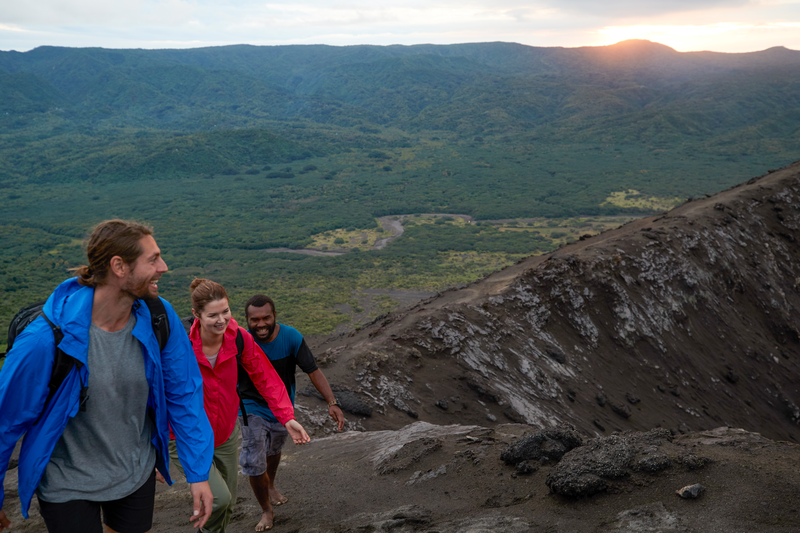
2. Promoting cultural events (Kastom)
To preserve its cultural heritage, Vanuatu highlights a calendar of kastom events, such as the famous Nagol (land diving) and Rom dance festival on Ambrym island. These festivities showcase ancestral traditions while providing direct economic benefits to local communities. Encouraging visitors to attend these events also helps distribute tourist flows throughout the year, avoiding overcrowding during peak seasons.
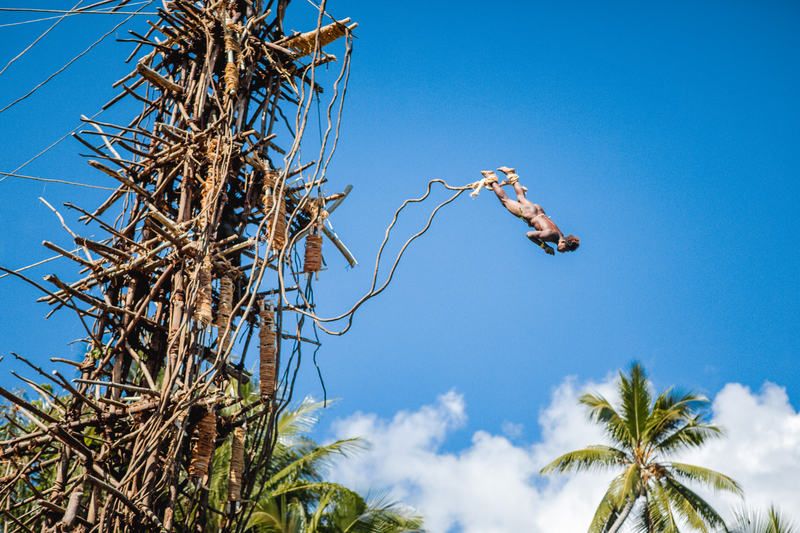
3. Community tourism with island bungalows
Island bungalows in Vanuatu offer an immersive experience in local life while being environmentally friendly. These accommodations, often built with natural materials and powered by solar energy, promote a reduced ecological footprint. By staying in these bungalows, travelers directly support local families and contribute to the economic development of rural areas.
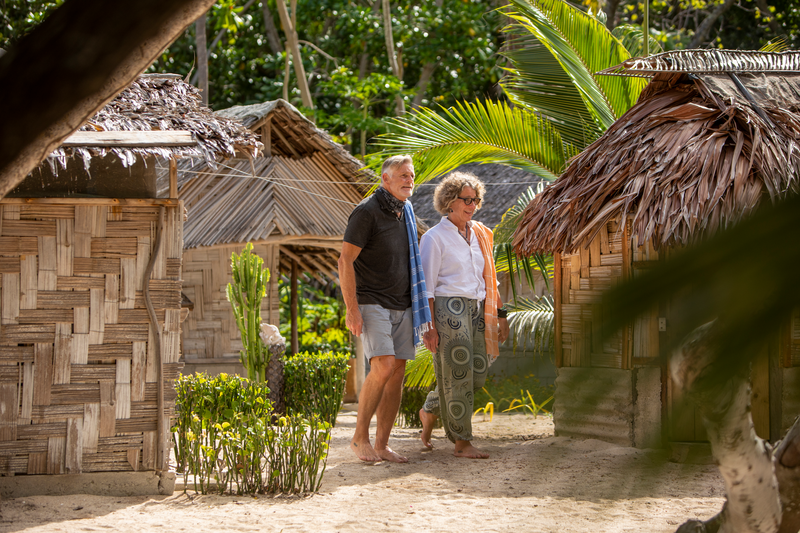
4. Marine conservation and coral restoration
Vanuatu is actively committed to protecting marine ecosystems through coral planting initiatives and the creation of marine protected areas such as the Rockwater Resort Marine Sanctuary. Other projects such as the Hideaway Island Marine Reserve and the Rowia coral planting initiative also aim to restore damaged reefs while raising visitor awareness about the importance of marine biodiversity.
Tourists can take part in coral planting workshops, directly contributing to the preservation of the underwater environment.
Other major efforts include the Maskelyne Island clam shell conservation project and the Maskelyne Island dugong conservation area, both of which play a vital role in protecting marine life in Vanuatu.
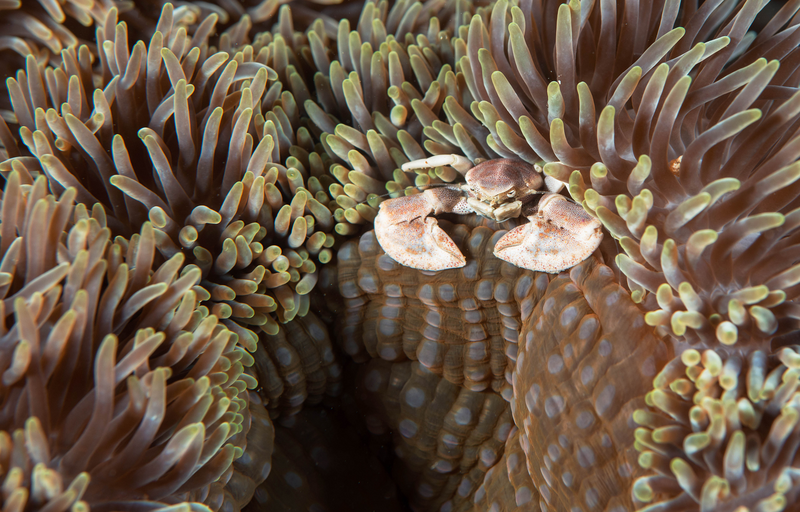
5. Sustainable management of cruise tourism
To limit the impact of cruise tourism, Vanuatu has implemented management protocols to protect sensitive coastal areas. Cruise ships are welcomed in specific zones, such as Mystery island, where the tourist influx is strictly controlled. Passengers are guided along predetermined paths to protect local traditions and marine ecosystems. Waste management protocols are also in place for every stopover.

6. Reducing single-use plastics
Vanuatu has taken steps to reduce the use of single-use plastics in the tourism sector. Visitors are encouraged to use reusable water bottles, cloth bags, and biodegradable packaging. Hotels and restaurants also participate in this initiative by offering filtered water stations and reusable bottles, like at Ratua Island Resort and South Pacific Memories. Blue Pacific World is local enterprise focused on ocean conservation has partnered with Ramada resort, Jills Cafe and Breakas resort to have reusable water bottles available for customers.

7. Protecting natural spaces
In Vanuatu, the creation of protected natural areas plays a crucial role in preserving biodiversity while paving the way for more environmentally friendly tourism. On Santo Island, sites like the Big Bay Conservation Area and the Vatthe Conservation Area shelter pristine forests, rare and sometimes endemic species, offering visitors authentic experiences in nature. Responsible hiking, local wildlife discovery, and environmental awareness initiatives led by local communities embody a sustainable approach to tourism, where showcasing natural wealth goes hand in hand with its preservation.
To read more about this conservation space, click here: Vatthe Conservation
, 
8. Agritourism and promoting local products
Vanuatu encourages agritourism by showcasing local products and sustainable farming practices. Visitors can discover coffee cultivation on Tanna, visit vanilla farms in Santo, or participate in local cooking workshops. This approach supports small producers while offering authentic gastronomic experiences.
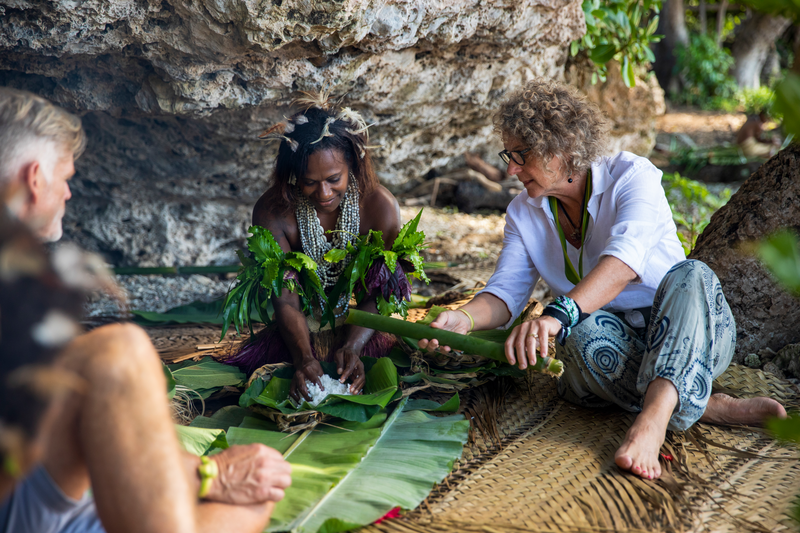
9 . Responsible interactions with dugongs
To protect dugongs, a vulnerable marine species, the Vanuatu Environmental Science Society (VESS) has established guidelines for interacting with these animals. Visitors are educated on best practices, such as keeping a respectful distance and avoiding intrusive behavior. Guided observation tours, led by local experts, allow visitors to enjoy the experience while respecting the dugongs’ natural habitat.
By choosing Vanuatu as a travel destination, you’re not just exploring a paradise of breathtaking landscapes and vibrant cultures. You’re also contributing to a sustainable future where tourism respects the environment, preserves traditions, and supports local communities.


